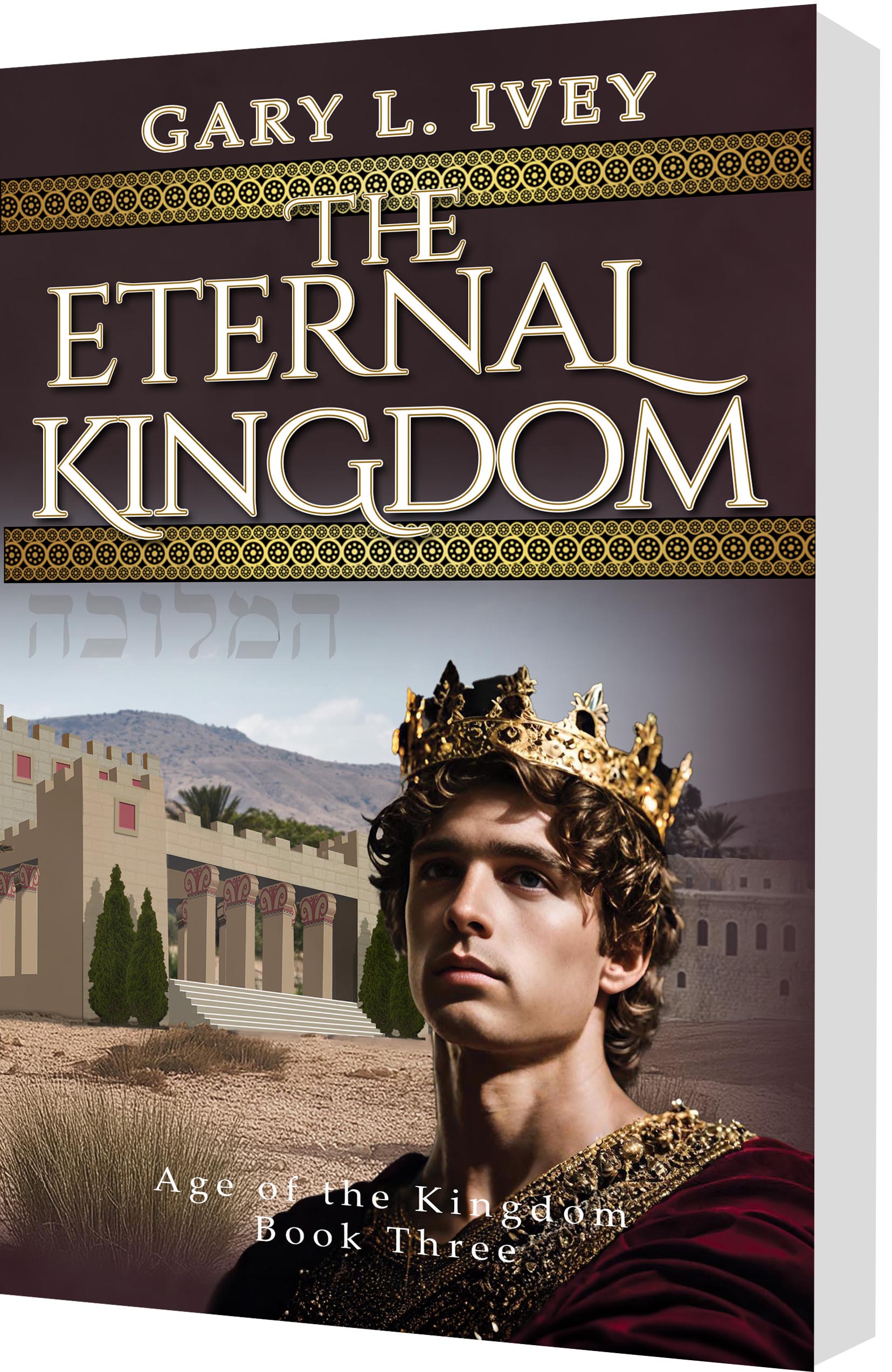The Eternal Kingdom
Your content goes here. Edit or remove this text inline or in the module Content settings. You can also style every aspect of this content in the module Design settings and even apply custom CSS to this text in the module Advanced settings.
The Eternal Kingdom, the third novel in the series, is available for ordering. It covers the time from the death of King Saul and David becoming the king of the southern kingdom of Judah through his scandal with Bathsheba.
Notable events in The Eternal Kingdom:
- The civil war between the tribes of Israel.
- The assassination of Abner in revenge by David’s nephews.
- The betrayal and assassination of the last son of King Saul by his own generals.
- Azel’s new role as David’s envoy
- David’s pacification of the Philistines, ending hundreds of years of oppression.
- David’s dalliance with Bathsheba and his making things worse by ordering her husband killed.
This novel even more than the first two is about intertwined relationships and how they impact people far beyond their family circle. Betrayal is a theme that appears again and again.
But another theme is contained in the title, The Eternal Kingdom. It is during this time that the prophet Nathan informs David that his kingdom will last forever. While descendants of David did sit on the throne in Jerusalem for almost 500 years, his dynasty was not truly forever.
So, was Nathan wrong? Not if we see through spiritual eyes. In the New Testament, Jesus Christ is often called “The Son of David.” That was no idle nickname; the gospel writers went to great pains to establish that Jesus was descended from David. That’s because they believed he was “The Christ,” which is from the Greek “Christos,” which means “the anointed one.” The word for “anointed one” in Hebrew is the word from which we get “Messiah.” All Israel’s kings were anointed with olive oil as a symbol of God’s Spirit anointing them; in a sense they were all messiahs.
But Jesus is called “THE Messiah” by those who believe in him. It is in Christ that we have the REAL Eternal Kingdom.

